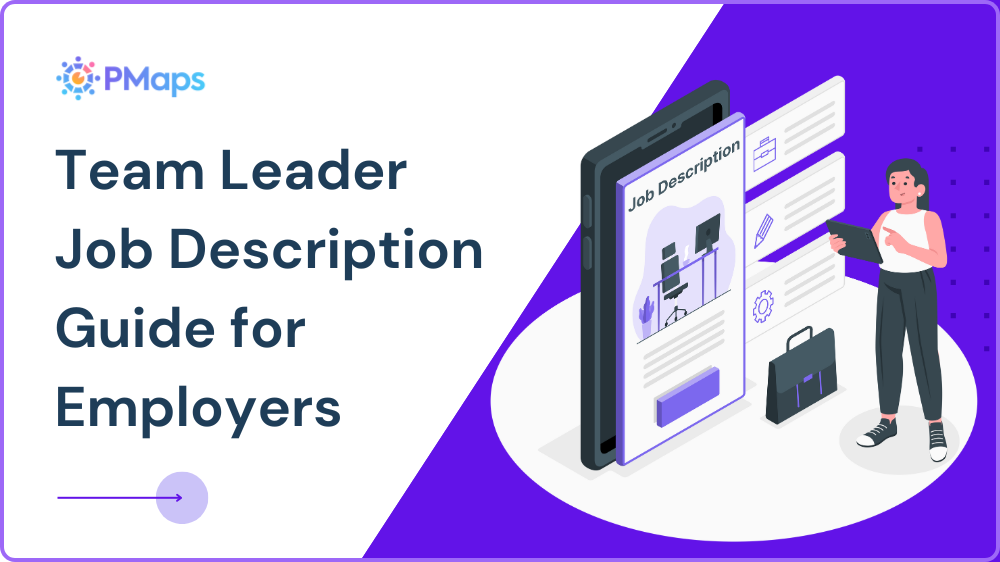
A well-crafted project manager job description is key to attracting professionals who can lead diverse projects from conception through to completion. Whether in IT, construction, operations, or corporate services, a skilled project manager ensures initiatives are delivered on time, within scope, and aligned with strategic objectives.
Hiring a PM? Start with the Project Manager Test—avoid mis-hires.

This guide offers a customizable project manager position description built to help recruiters find candidates who combine leadership, organization, and problem-solving skills. Unlike generic outlines, this structure defines the real-world project manager work description critical to today’s fast-moving industries.
Struggling to communicate expectations? The Project Manager JD Template gets it done—download now.
Project Manager Roles & Responsibilities
Clear articulation of project manager roles and responsibilities helps candidates visualize their impact across projects. Strong project managers drive outcomes by aligning teams, managing resources, and mitigating risks effectively. Key project manager job duties include:
- Project Planning: Define project scope, objectives, timelines, and deliverables.
- Team Coordination: Assign tasks, monitor progress, and ensure collaboration across functional teams.
- Budget Management: Estimate costs, manage budgets, and track expenses throughout project lifecycles.
- Risk Management: Identify potential risks early and develop mitigation strategies.
- Stakeholder Communication: Serve as the point of contact for clients, vendors, and internal leadership.
- Quality Assurance: Maintain high-quality standards across deliverables and project outputs.
- Progress Reporting: Regularly update stakeholders on project status, risks, and milestones.
- Process Improvement: Analyze project outcomes and suggest process enhancements for future initiatives.
Objective of the Project Manager Role
The objective of a project manager role goes beyond supervising tasks — it’s about ensuring projects deliver measurable value, stay within budget, and meet organizational goals. A strong project manager job profile ties leadership, communication, and operational excellence together to achieve successful project outcomes.
Key objectives include:
- Ensure Project Alignment: Keep project goals aligned with business strategies and stakeholder expectations.
- Optimize Resources: Maximize the use of time, budget, and manpower without compromising quality.
- Drive Timely Delivery: Maintain schedules, meet deadlines, and manage interdependencies effectively.
- Manage Risks Proactively: Identify, assess, and mitigate risks throughout the project lifecycle.
- Promote Cross-Functional Collaboration: Facilitate clear communication and cooperation between different departments and teams.
Ask about process, not just projects—try these Project Manager Interview Questions.
Qualification and Skill Requirements for Project Managers
A strong project manager job description must define not just the responsibilities but also the skills required for success. Effective project managers balance technical expertise with leadership, organization, and communication skills.
Key project manager job requirements include:
- Educational Background: Bachelor’s degree in Business Administration, Engineering, IT, or related fields; PMP or PRINCE2 certification preferred.
- Experience: 3–7 years of experience in project management, handling diverse, cross-functional teams.
- Communication Skills: Ability to communicate clearly with stakeholders, team members, and executives at all levels.
- Leadership Ability: Skilled in motivating teams, delegating tasks, and driving accountability.
- Organizational Skills: Expert in managing multiple projects, timelines, and priorities simultaneously.
- Problem-Solving Mindset: Ability to anticipate challenges and resolve issues proactively.
- Technical Proficiency: Familiarity with project management tools (like MS Project, Asana, Jira, or Trello) and basic budgeting software.
Perks and Benefits of the Project Manager Role
Beyond responsibilities and expectations, a strong project manager job profile should highlight the rewards and opportunities the role offers. Showcasing benefits not only attracts top talent but also improves retention.
Common perks and benefits include:
- Career Growth Opportunities: Clear paths to senior project leadership, program management, or operations management roles.
- Performance Bonuses: Incentives tied to project delivery, client satisfaction, and operational efficiency.
- Professional Development: Access to certifications, leadership training programs, and continuous learning platforms.
- Flexible Work Options: Hybrid or remote working models depending on project needs and organizational policies.
- Comprehensive Health Benefits: Health insurance, retirement savings plans, and wellness initiatives.
- Recognition Programs: Awards and acknowledgments for excellence in project management and team leadership.
Tips for Employers to Craft an Effective Project Manager JD
Creating a compelling project manager job description ensures you attract candidates who lead with both strategy and execution. Precision in communication helps align expectations early and improves hiring outcomes.
Key tips include:
- Tailor to Project Needs: Match the JD to the project's scale, complexity, and industry focus.
- Emphasize Accountability: Clearly define expectations for budgets, timelines, and team leadership.
- Highlight Career Growth: Show pathways to senior project management and program leadership roles.
- Specify Required Tools: List project management software and methodologies (e.g., Agile, Scrum, Waterfall).
- Keep Language Direct and Inclusive: Write clearly to attract diverse project management talent.









